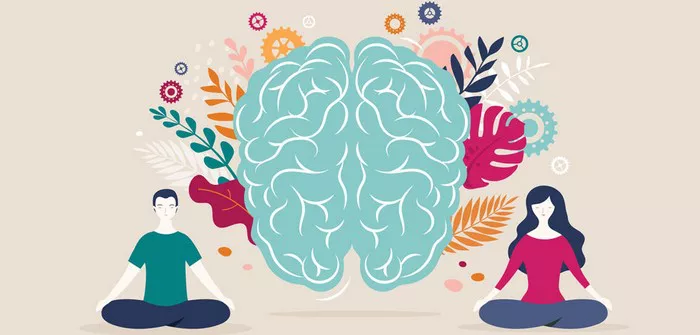Acknowledge the Concern:
Start by acknowledging the user’s worry and validating their feelings. Explain that it’s natural to question the state of your mental health when noticing changes in behavior or environment. It’s common for individuals, or those close to them, to associate a messy living space with underlying mental health issues, particularly depression. However, it’s essential to approach this topic with sensitivity and understanding, recognizing that messy surroundings don’t always indicate a deeper psychological struggle.
Clarify the Link Between Messiness and Depression:
Explain that while depression can sometimes manifest in neglecting chores like cleaning, a messy room alone is not necessarily a sign of depression. Many factors can contribute to a messy space, such as busy schedules, lack of organizational skills, or simply personal preference. It’s important to avoid jumping to conclusions and to consider the broader context before assuming a direct correlation between untidiness and mental health.
Outline Symptoms of Depression:
Provide a clear and concise overview of common depression symptoms, emphasizing that it’s a complex condition with various physical, emotional, and cognitive signs. Symptoms may include persistent feelings of sadness or emptiness, loss of interest in previously enjoyable activities, changes in appetite or weight, difficulty concentrating, fatigue or low energy, feelings of worthlessness or guilt, and thoughts of death or suicide. It’s crucial to recognize that depression affects individuals differently, and not everyone will experience the same symptoms or severity.
Offer Alternative Explanations for Messiness:
Discuss other potential reasons for a messy room, such as ADHD, executive dysfunction, stress, or recent life changes. ADHD, for example, can make it challenging to maintain organization and follow through with tasks, leading to cluttered spaces. Executive dysfunction, which can occur in various mental health conditions, can also impact a person’s ability to plan, prioritize, and complete tasks effectively. Additionally, significant life events or chronic stressors can temporarily disrupt routines and contribute to a disorganized environment.
Provide Actionable Tips:
Offer practical advice on how to tackle a messy room, regardless of the cause. This could include decluttering strategies, cleaning schedules, organizational tools, or seeking professional help for underlying issues. Encourage breaking tasks down into smaller, more manageable steps, setting realistic goals, and celebrating progress along the way. Suggest creating a cleaning routine and sticking to it, allocating specific times each day or week to tidy up. For individuals struggling with executive dysfunction or ADHD, recommend using visual cues, checklists, and timers to stay on track.
Encourage Seeking Professional Help:
If someone suspects they might be struggling with depression, strongly encourage them to seek professional help from a therapist or doctor. Provide resources such as mental health hotlines and websites where they can find support and information. Remind them that seeking help is a courageous step towards healing and that they don’t have to face their challenges alone. Encourage open communication with healthcare providers and loved ones, emphasizing the importance of honesty and vulnerability in the recovery process.
Promote Self-Care:
Highlight the importance of self-care practices for mental well-being, such as getting enough sleep, eating healthy, exercising regularly, and engaging in enjoyable activities. Encourage individuals to prioritize their physical and emotional needs, setting boundaries and saying no when necessary. Suggest incorporating relaxation techniques such as deep breathing, meditation, or mindfulness into daily routines to reduce stress and promote relaxation. Remind them that self-care is not selfish but essential for maintaining overall health and resilience.
Conclusion
In conclusion, while a messy room may raise concerns about mental health, it’s essential to approach the topic with empathy, understanding, and a recognition of the complexity of individual experiences. By considering alternative explanations, providing practical advice, and encouraging professional help and self-care, we can support individuals in navigating their mental health challenges and creating environments conducive to well-being.
FAQs
Is not cleaning your room a symptom of depression?
Yes, neglecting household chores like cleaning can be a symptom of depression. Individuals experiencing depression often struggle with motivation and energy, making it difficult to complete even simple tasks such as tidying up their living space.
Is a messy room a sign of mental illness?
A consistently messy room can be a sign of various mental health issues, including depression, anxiety, or hoarding disorder. While not always indicative of a mental illness on its own, a persistently cluttered living space may suggest underlying psychological challenges.
Can depression prevent you from cleaning?
Yes, depression can significantly impact a person’s ability to maintain cleanliness. The lack of motivation, energy, and interest commonly associated with depression can make tasks like cleaning feel overwhelming and insurmountable, leading to a perpetually untidy environment.
Related topics:


